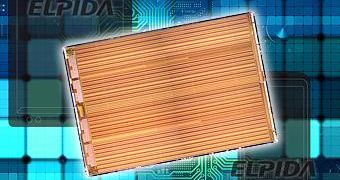You'd think that, after repeated optimistic reports about the situation on the memory market, things would start looking up for that sector, but the most recent news on the matter says otherwise.
Apparently, the second half of November, 2011 (this month) only brought about further decline in DRAM pricing.
This was after people started saying that it was stabilizing, that memory chips were finally recovering in value.
Not that consumers would have much reason to rejoice over prices going up again, but there is a certain point beyond which further price cuts become dangerous to the companies that make memory and, eventually, the industry segment as a whole.
Then again, it was only recently shown that some DRAM producers were considering selling some of their factories.
During the past two weeks, DRAM chip prices slid down by about 8 percent, because PC makers decreased orders, again.
This may be the traditional off-season, when this order reduction happens all around, but Elpida, ProMOS, Powerchip, Inotera and anyone else in the random access memory business are in a special situation.
After all, they have been oversupplied for over a year, during which they have been forced to cut prices, again and again.
Things have gotten so bad that Kingston felt itself compelled to try and help Toshiba and Elpida cope with their challenge by placing some large orders.
At least this makes sure memory continues to be the most convenient and affordable of all tech buys.
Then again, the reason things even progressed this far is because, even at such low prices, RAM just doesn't sell well enough, which makes it more or less a moot point that customers are in luck, since they apparently don't need new modules.
What remains now is to see if, even with the holiday season, sales continue to be so underwhelming. December 2011 may just return yet another price fall.

 14 DAY TRIAL //
14 DAY TRIAL //